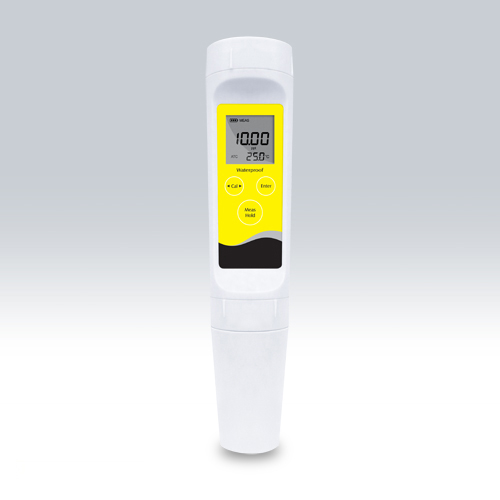Conductivity Meters are essential laboratory equipment for any professional seeking precise results in water analysis. Manufacturers around the world design these instruments to measure the water’s ability to conduct electric current, a vital indicator of the level of impurities in the water. This device is available in different models and price ranges, making it accessible to multiple users.
Conductivity Meters come in various formats, such as portable or benchtop, and adapt to a wide variety of applications, from drinking water testing to wastewater analysis. Although many manufacturers exist, it is important to compare prices and functions before making the purchase to ensure obtaining a device that suits the specific needs of water analysis.
How Conductivity Meters Work
The operation of a conductivity meter is simple yet highly effective. To analyze the water, the device is submerged in it and voltage is applied to the meter’s electrodes. The current generated measures the water’s ability to conduct electricity, which is directly related to the level of salts, minerals, or other impurities.
The effectiveness of a Conductivity Meter largely depends on its manufacturer, as a higher quality device will ensure greater measurement accuracy. The prices can vary depending on the device’s technical specifications, so it is important to consider the quality-price ratio when making the purchase. https://kalstein.co.in/category-product/laboratory-line/conductivity-meters-laboratory-line/
Advantages and Disadvantages of Conductivity Meters
The Conductivity Meters offer several advantages including:
- Ease and speed in obtaining results
- Precision in measurements
- Versatility for use in different types of waters
But like all equipment, they also have their disadvantages:
- Need for regular calibration to maintain accuracy
- The price ranges can be high for more accurate models
It is worth noting that the sale of these devices is increasing given their indispensable utility in many industries. If you want to know the catalog of high-end products that we have at KALSTEIN for you visit us https://kalstein.co.in/
Applications and Usefulness in Water Analysis
Conductivity Meters are widely used in water analysis to measure purity and quality. They are useful for checking the potability of water, monitoring water treatment systems, and analyzing seawater, wastewater, or water for industrial processes.
When purchasing these devices, it is crucial to take into account the specific application they will be given. The price of a meter designed for highly accurate analyses will be higher than one designed for more general measurements. Likewise, manufacturers offer options that adapt to a wide range of needs and budgets.
Building a world with cleaner, safer water is a global effort. Innovations in laboratory equipment like Conductivity Meters are facilitating this task. We hope that the sale of these devices continues to increase and that the purchase of these valuable tools becomes even more accessible for laboratories all over the world.


